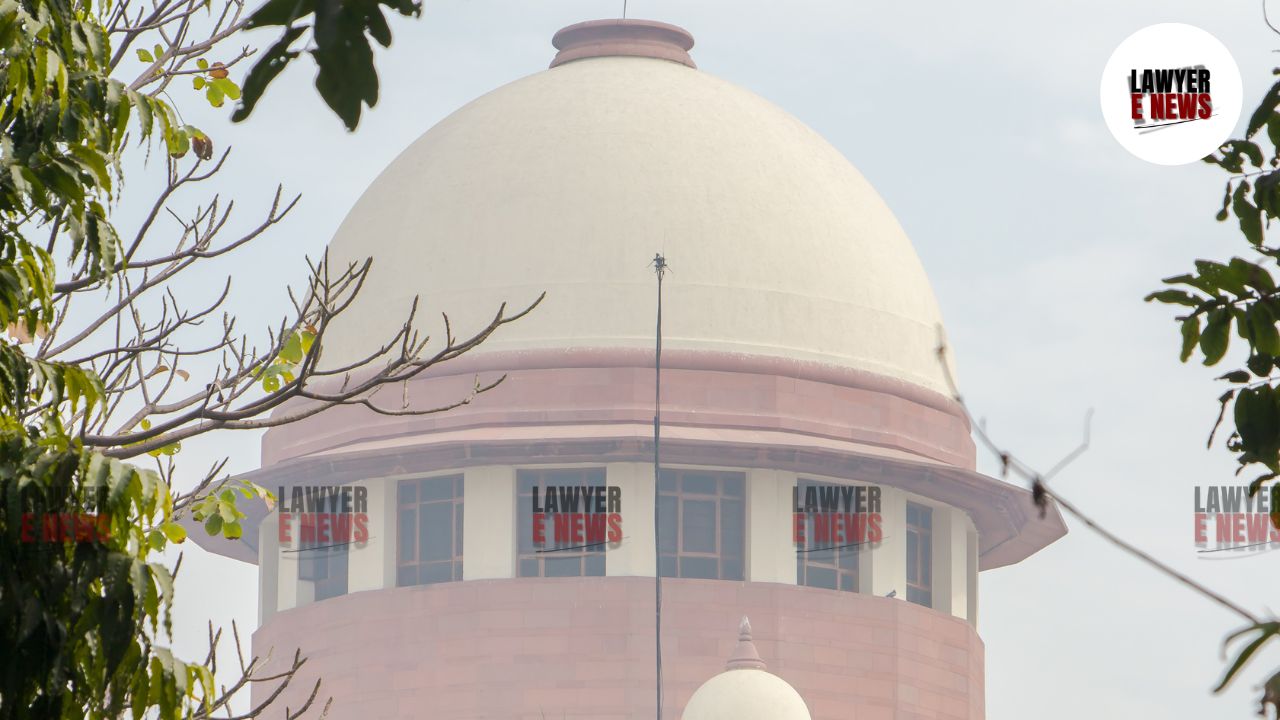-
by Admin
15 February 2026 2:36 AM



Supreme Court of India addressed the contentious issue of when the limitation period for filing objections to an arbitral award begins under the Arbitration Act, 1940. The Court held that the limitation period begins when the party becomes aware of the award’s filing and not from the date of receiving formal notice from the court. The judgment, delivered by a Bench of Justice Pamidighantam Sri Narasimha and Justice Sandeep Mehta, sets a significant precedent for interpreting procedural requirements under arbitration law to avoid unnecessary delays.
The dispute arose from a construction agreement entered into by the appellant's husband, the proprietor of M/S S.R. Engineering Construction, with the Union of India for building an armament section in Tezpur. After completing the work in 1993, the appellant’s husband raised a bill, but the respondents failed to make payment, prompting the appellant to invoke arbitration under Clause 70 of the contract. After prolonged litigation for the appointment of an arbitrator, the District Judge, Sonitpur, finally appointed one in 2019.
The arbitrator passed an award in favor of the appellant on May 31, 2022, directing the respondents to pay Rs. 1,33,47,268.92/- with 9% annual interest until realization. However, the respondents failed to clear their portion of the arbitrator’s fees, delaying the publication of the award. This led to the appellant approaching the District Judge, Sonitpur, who, on September 21, 2022, directed the respondents to pay the arbitrator’s fees. Despite this order, the respondents cleared the fees only on November 18, 2022, following which they received a formal notice of the award’s filing on the same date.
Meanwhile, the appellant, having already received a copy of the award on September 22, 2022, filed an application under Section 17 of the Arbitration Act, 1940 on November 10, 2022, seeking the court’s judgment in terms of the award. The District Court dismissed this application on November 23, 2022, declaring it "premature" as the limitation period for objections under Article 119(b) of the Limitation Act, 1963, was allegedly still running. The High Court upheld this decision, leading the appellant to approach the Supreme Court.
The primary question before the Supreme Court was whether the limitation period under Article 119(b) of the Limitation Act, 1963, begins with formal notice of the award’s filing or when the party is sufficiently aware of the award’s existence.
The appellant argued that the limitation period began on September 21, 2022, when the District Court directed the respondents to clear the arbitrator’s fees for the award’s publication. She contended that this order constituted sufficient notice under Section 14(2) of the Arbitration Act, 1940, as it apprised the respondents of the award’s existence. By this logic, the limitation period for objections expired on October 20, 2022, making her Section 17 application validly filed on November 10, 2022.
The respondents, however, argued that the limitation period started only on November 18, 2022, when they received formal notice of the award’s filing from the District Court. They contended that a formal notice was mandatory under Section 14(2) to trigger the limitation period and that the order directing payment of fees could not be construed as sufficient notice.
The Supreme Court rejected the High Court and District Court's reliance on the formal notice date (November 18, 2022) and held that the limitation period began when the respondents were sufficiently aware of the award’s filing on September 21, 2022.
The Court emphasized that the term "notice" under Section 14(2) of the Arbitration Act, 1940, does not necessarily mandate formal issuance. Instead, any form of communication or event that makes the party aware of the award’s existence suffices. The Court relied on its previous rulings, including Nilkantha Sidramappa Ningashetti v. Kashinath Somanna Ningashetti (1961), which held that "informal communication or intimation is sufficient compliance with Section 14(2)."
The Court noted that the order dated September 21, 2022, which directed the respondents to pay the arbitrator’s fees, explicitly informed them that the award would be published upon payment. This constituted adequate notice under Section 14(2), as the respondents were made aware of the award’s existence and had the opportunity to file objections. Relying solely on formal notice, the Court observed, would defeat the purpose of arbitration, which aims to resolve disputes expeditiously.
The Court also cited Bharat Coking Coal Ltd. v. C.K. Ahuja (2001) and Food Corporation of India v. E. Kuttappan (1993) to underline that delaying tactics, such as waiting for formal notices despite knowledge of an award, undermines the intent of arbitration laws. It clarified that the limitation period must be calculated from the date of awareness and not the date of receiving a formal notice.
The Supreme Court set aside the High Court’s judgment and held that the limitation period for filing objections to the award began on September 21, 2022, when the respondents became aware of the award. Consequently, the appellant’s Section 17 application, filed on November 10, 2022, was valid, as the limitation period for objections had already expired by October 20, 2022.
The Court directed the District Judge, Sonitpur, to expeditiously dispose of the appellant’s Section 17 application within five months. No costs were awarded.
This judgment reinforces the principle that arbitration laws must prioritize efficiency and discourage procedural delays. By holding that awareness of an award suffices to trigger the limitation period for objections, the Court has ensured that parties cannot misuse procedural technicalities to stall arbitration proceedings.
The decision also underscores the substantive nature of Section 14(2) of the Arbitration Act, 1940, emphasizing that "notice" does not require a formal process but simply aims to apprise the parties of the award’s filing. This interpretation aligns with the overarching objective of arbitration laws—to provide speedy and cost-effective resolution of disputes.
Date of Decision: January 3, 2025
